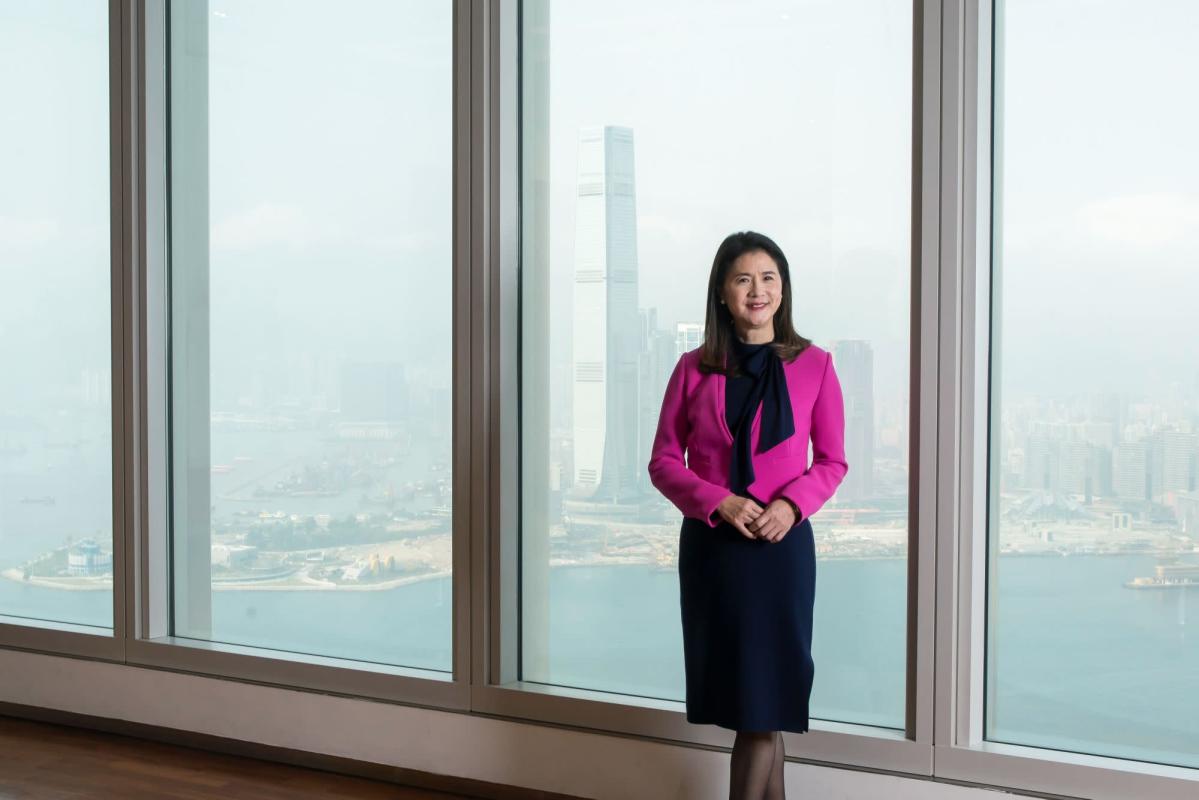
(Bloomberg) — When Amy Lo was offered a chance to head UBS Group AG’s Asia business for the super rich in 2010, her first answer was “no,” fearing it would be a risky step into the unknown.
A dozen years later, after accepting the role with some urging from a mentor, Lo now helps lead one of the most-profitable wealth units at the Swiss bank, and is urging other young female bankers to break out of their comfort zones to seek bigger roles.
“We usually take everything on our own shoulders,” said Lo, who became co-head of UBS’s Asia-Pacific wealth business three years ago, while juggling home and work demands. “For me, I’m a wife, working wife, working mom and also run a business here.”
Lo says a key part of expanding that business will be attracting more female clients, who are building assets at a much faster clip than their male counterparts. UBS estimates that wealth for women in Asia outside of Japan will jump to $7.3 trillion by 2025, an increase of about 50% from $4.8 trillion in 2020.
That’s the fastest growth rate in the world as the number of female entrepreneurs rises, particularly in China. Women in Asia are also inheriting vast amounts of wealth, taking over businesses from aging parents, and setting up family offices.
“Since 2017, we have really repositioned and made the female client a business priority,” said Lo, in a video interview from Hong Kong, where she helps run $521 billion in assets. “Asia right now is in the transition of wealth to the next generation.”
The region’s female billionaires include Yang Huiyan, who controls Chinese developer Country Garden Holdings Co. and has a net worth of about $22 billion. Zhou Qunfei is a self-made billionaire and chair of consumer electronics firm Lens Technology Co., while Pansy Ho, daughter of the late Stanley Ho, chairs Shun Tak Holdings, which runs ferry and helicopter services between Hong Kong and Macau.
Across the finance industry, more women are taking on senior leadership roles, according to Lo. At UBS’s wealth management unit in Asia, more than 60% of staff are women. Half of its employees at the director level and above are female, an increase of 5-10 percentage points from a decade ago, the bank said.
Marina Lui heads up the China wealth unit, while Adeline Chien runs the domestic Hong Kong business and manages Southeast Asia clients in Hong Kong. Elsewhere, Helen Wong was appointed head of Oversea-Chinese Banking Corp. last year, becoming the first female chief executive officer of a bank in Singapore.
More Services
As women accumulate more assets, UBS is tailoring more services for them. The bank sees strong interest from women for sustainable investing, wealth planning and family advisory, and has added offerings that go beyond finance, from mental health support to Chinese medicine and Qigong, a form of Chinese exercise.
Women are twice as likely as men to say it’s extremely important that the companies they back incorporate environmental, social and governance factors into their policies, according to a UBS report. Assets in the firm’s discretionary portfolios focused on ESG in Asia-Pacific crossed $5 billion in 2021, a 160% jump from the previous year. Efforts by regulators to push for more disclosure on climate and governance have also spurred interest from entrepreneurs.
Asia’s wealthy women have become more active in investment since the onset of Covid, according to HSBC Holdings Plc, noting there has been a 14% increase in the number of mass affluent female investors compared to the pre-pandemic period.
Aside from female clients, UBS is focusing on the so-called “new economy” sector, which includes technology, media and telecommunications, Lo said. As part of its ambition to be the go-to bank for the sector, UBS last year created a team focusing on deal origination and screening of high-potential companies.
“When I look at where the new wealth is coming from, where the new business opportunity is coming from, these are in the new economy sector,” said Lo.
China’s crackdown on tech giants like Alibaba Group Holding Ltd. and Tencent Holdings Ltd. have roiled investors, though the pandemic has accelerated the adoption of digital services, and there’s no turning back, according to Lo.
“While there’s a crackdown, the train has left the station, the world is also getting more digital,” she said.
China Market
China remains a “very important” market even amid the recent crackdowns and volatility, which contributed to an 11% drop in Asia-Pacific assets under management in the second half of 2021.
Still, Lo’s unit — which she runs with August Hatecke in Singapore — posted a pretax profit of $1.2 billion last year, accounting for more than a quarter of the bank’s overall wealth management earnings.
The firm will continue to hire in China, where it has about 200 wealth staff at three entities, including a broker, bank and the UBS Qianhai Wealth Management subsidiary.
Cycles
With global markets in free fall following the Russian invasion of Ukraine, Lo is drawing on her vast experience, urging relationship managers to stay close to their clients.
“During my 30 years, we have gone through a few financial crises that really woke me up at night,” she said. “Market volatility is one thing that is definitely here to stay.”
Lo, who in normal times would unwind by playing golf and hiking, is also mindful of keeping tabs on her staff in Hong Kong, which is facing a surge in Covid-19 cases and deaths, prompting more restrictive measures. As a manager, she often finds herself guiding her team through difficult times while staying positive.
“I have had a few times where even some of the very senior managers are coming in, crying in my office,” she said. “My belief is tomorrow will be better.”
©2022 Bloomberg L.P.